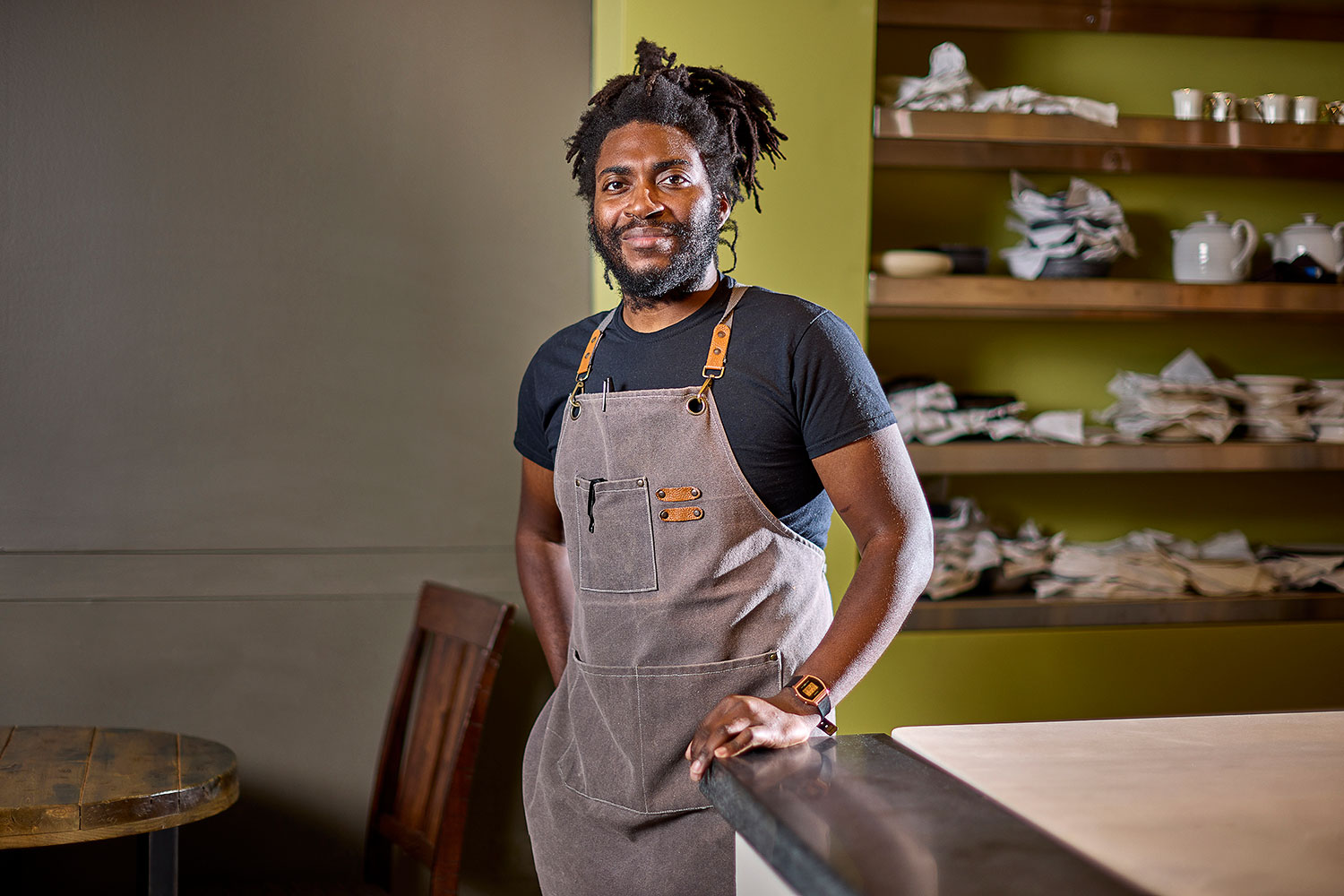Coming into an established restaurant as a brand-new chef is always a challenge; will angry guests complain about the changes, and demand a return to their beloved traditions, or will the new approach be seen as refreshing and welcome? At Atelier, in the space that formerly housed Elizabeth, chef Christian Hunter sees the challenges, but hopes that his devotion to local ingredients and global flavors will win over the restaurant’s large fan base.
If you never got a chance to visit, Elizabeth was a much-acclaimed, Michelin-starred fine dining spot that focused on unique, often foraged ingredients, presented with as much whimsy as possible. The chef, Iliana Regan, has written two memoirs and, over the last few years, reestablished herself as a culinary innkeeper in the wilds of Michigan. This left a gap at Elizabeth, which the owners decided needed a total refresh. Hence Atelier, the chef position for which Hunter saw in an advertisement.
Hunter is a newcomer to the city (he’s lived here for a few weeks now) and spent the last several years in Connecticut cooking at Community Table and earning a James Beard Award semifinalist nod for Best Chef: Northeast. Before that, he worked all over the east coast, often in rural areas and smaller cities. “What I do is American food, in a good way,” says Hunter. “I really enjoy food from different walks of life, ethnic cuisines, but the fun part is that I haven’t necessarily traveled the most, so food is my version of being able to travel.”
His menu combines flavors from all over the place, but the uniting feature is an obsessive commitment to local ingredients, even when they aren’t particularly popular ones. Take, for example, the “salad” (or pasta course, depending on your point of view) on his current menu. It’s made with super-thin ribbons of rutabaga, which is plentiful here during the winter but very rarely seen on restaurant menus. He serves them with a dressing that he describes as “Caesar-like,” a combination of anchovy-forward bagna cauda, white miso, and lime juice. To keep with the salad theme, it’s served on a dollop of romaine puree, with black pepper and pecorino cheese. “We serve it with a spoon, we want you to spin it, and see if it hits you as a Caesar or as a pasta. If it hits you either way, this is fun and interesting.”
Even though he’s new to Chicago, the restaurant has familiar notes that will make guests smile. One course is a pierogi, there’s a housemade root vegetable giardiniera on the menu, and the fish course, rather than the typical fine dining lobster or oyster, is freshwater whitefish. “A menu is a statement,” explains Hunter. “I wanted to come from a place of humbleness. It’s important to me to take that time and learn about this town.”
At $190 a person, the price at Atelier is lower than many tasting menus around town, and you can buy “season tickets,” a set of four dinners that comes with extra pours of drinks, takeaway gifts, and an opportunity for the restaurant to track your preferences and design your menus accordingly.
That whitefish, finished with smoked trout roe and pecan oil (made from local pecans) is also emblematic of a different sort of tasting menu, one that is missing many of the “prestige” ingredients that are typical of the genre. There’s no wagyu (short ribs cooked for 72 hours are the beef course), no fancy seafood, and no caviar. “It’s not cheap to buy local,” laughs Hunter. “It doesn’t have the same sexiness as wagyu or Hokkaido scallops. It’s important to me in using my platform as a chef to highlight things that are local and good and support our community. It’s a high-quality product. What matters is what you do with it.”



